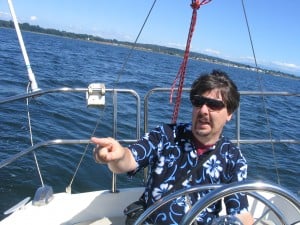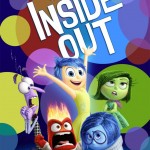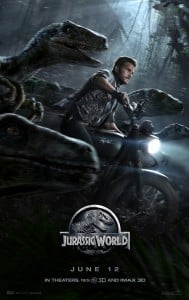Be warned: Fear and Loathing in Las Vegas is very faithful to the book.
That is to say, it chronicles on the big screen in vivid color the adventures of two individuals pumped full of drugs as they journey through Las Vegas and abuse tourists, residents, waitresses, each other, and themselves. They get high, they get higher, they get even higher, they get sick, they yell and break things, they vomit, and then they do it all again.
In other words, this may not be the movie for you.
But if you’re interested in the 60’s, in examining the rise and fall of the “Make Love Not War” generation, in seeing just what happens to politically-active potheads when they fall off the cliff of despair, then you’ll be hard-pressed to find a better film on the subject.
Hunter S. Thompson’s novel is a psychedelic trip of a book, meditating on the problems of the Vietnam War world, chronicling his flight from meaning and significance into a blinding rage of chaos and darkness. In seeing through the glamour of the hippie image to the monster of the human soul, Thompson’s semi-autobiographical character Raoul Duke (played here by Johnny Depp at his maniacal best) embraces the animal side of his fallen state and lives on his violent whims. His road buddy, Dr. Gonzo (Benicio Del Toro, gaining 40 pounds on his gut and acting up a turbulent storm), whom he calls his “attorney” and with whom he must “consult” before acting outrageously, is equally stoned and, perhaps, more dangerous. And perhaps what they see as their only alternative is an equally scary road. After all, who wants to be politically aware and active in the Nixon era? Who wants to participate in the increasing materialism of the 70’s? Who wants to be a U.S. citizen during the ongoing Vietnam War?
Duke and Gonzo don’t have much of a story to tell. They merely take a trip which lands them both in severe-overdose-hell. They give new meaning to the words “trashing the place” as they flood, vandalize, and pollute hotel rooms. Their drug highs in gambling casinos and bars result in visions of the rest of the customers turning into outlandish, nightmarish reptiles; even the carpet comes to life, either soaked in imaginary blood or transforming into fast- growing vines that creep up your legs and tie you down.
Terry Gilliam is the right director for these bizarre scenes. His love of wild and weird worlds, like the settings of his masterpiece Brazil and the fantasies of Perry in The Fisher King (one of my five favorite films of all time), gives him the spontaneously gleeful wit to show that there is something appealing about drug highs. It wouldn’t be honest to say that drugs are completely a drag. The hallucinations are entertaining and exhilarating at times. As was the message in the film Trainspotting, drugs are appealing. And, yes, they will destroy you. It’s honest about that too. So honest, in fact, that when the film debuted at the Cannes Film Festival, many walked out because they got sick watching it.
You may find yourself laughing from time to time at these frenetic exploits. I admit, I did. But it’s not a healthy laughter. It’s a laughter of denial, that distances you from these kamikaze broken hearts, that says “No one would do that.” The scary and sad thing is, they did. And this is where the road leads, the road that embraces American Freedom as the freedom to indulge one’s urges. It’s the same road that, in Apocalypse Now or any other loose adaptation of Conrad’s Heart of Darkness, leads the arrogant tyrant to look into his own fallen heart and say “The horror! The horror!”
A word about acting: Johnny Depp is proving that he is not only the best actor of his generation… he’s one of the best screen actors alive today. Watching this after marveling at his work in films like Ed Wood, What’s Eating Gilbert Grape?, CryBaby, and Edward Scissorhands, I am only more amazed. He can do anything. Del Toro is more than just a walking beer belly, too. In this film, he’s every bit Depp’s match. In spite of a dozen flashy cameos (Cameron Diaz, Lyle Lovett, Mark Harmon, Michael Jeter, Flea, Harry Dean Stanton, Gary Busey, and the ever-more-impressive Christina Ricci), every scene belongs to these two. I shudder to think, though, what it does to an actor to immerse himself in parts like these.
Fear and Loathing in Las Vegas is a searing vision of a world without God. If this film is good for anything, perhaps it’s to teach a lesson of what not to do and where not to go. I’ve warned you.











